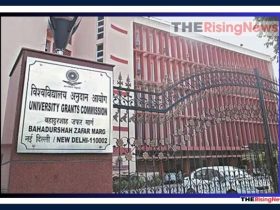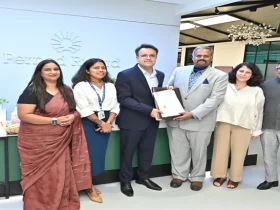NEW DELHI, July 31, 2024 – A Deep analysis by PARAKH, an assessment body under the National Council of Educational Research and Training (NCERT), has identified five Indian states with the toughest board exams for Class 10 and 12 students. This study scrutinized the difficulty levels of English and Mathematics question papers to highlight disparities and guide the standardization of assessments.
Board Exams in India
The study by PARAKH identified Tripura, Maharashtra, Goa, Chhattisgarh, and West Bengal as having the most challenging board exams in India. This assessment was based on the complexity of questions and the required critical thinking skills. The aim was to ensure a more uniform evaluation process across all states, providing a level playing field for all Class 10 and 12 students.
Tripura’s Mathematics exams are notably rigorous, demanding a deep understanding of complex problem-solving techniques. Students often struggle with the high level of difficulty, which sets them apart from peers in other states. This has raised concerns about the need for more supportive educational resources to help students excel in these exams.
In Maharashtra, English papers are challenging due to their advanced comprehension passages and intricate grammar exercises. The complexity of these exams requires students to have a high proficiency in English, which is often a hurdle for many. This disparity highlights the necessity for a standardized assessment approach to ensure all students are evaluated fairly.
Goa’s board exams are characterized by their application-based Mathematics questions, which test students’ ability to apply theoretical knowledge in practical scenarios.
This focus on application over rote learning is a significant shift that emphasizes the need for a curriculum that fosters critical thinking and problem-solving skills.
Chhattisgarh’s analytical skills requirement in both English and Mathematics exams makes them some of the toughest in the country. These exams are designed to test students’ ability to think critically and analytically, ensuring they are well-prepared for higher education challenges.
This approach, while beneficial in the long run, poses immediate difficulties for students who are not accustomed to such rigorous assessments.
West Bengal’s board exams, particularly in Mathematics, test advanced concepts and their practical applications. This high level of difficulty necessitates a strong foundation in the subject, pushing students to achieve a deeper understanding and mastery of the material.
This focus on advanced knowledge and application ensures that students are not just prepared for exams, but also for real-world scenarios where these skills are essential.
Historically, there has been significant variation in the difficulty of board exams across different states in India. This variation can affect student performance and university admissions, making it crucial to establish a more uniform assessment standard.
The findings from the PARAKH study were presented at a recent NCERT conference, attended by education ministers from the states in question. The conference discussed potential revisions to exam formats to align with standardized difficulty levels, ensuring fairness and consistency.
Standardizing the difficulty levels of board exams is vital for creating a level playing field for students nationwide. It helps ensure that all students, regardless of their state board, are evaluated equally, making college admissions fairer. By adopting best practices from across various state boards, the overall quality of education can be improved, benefiting students and educators alike.
The PARAKH study underscores the need for a standardized assessment system across India’s state boards to ensure fairness and consistency in student evaluations. This initiative is crucial for leveling the playing field and improving the overall quality of education in India.









